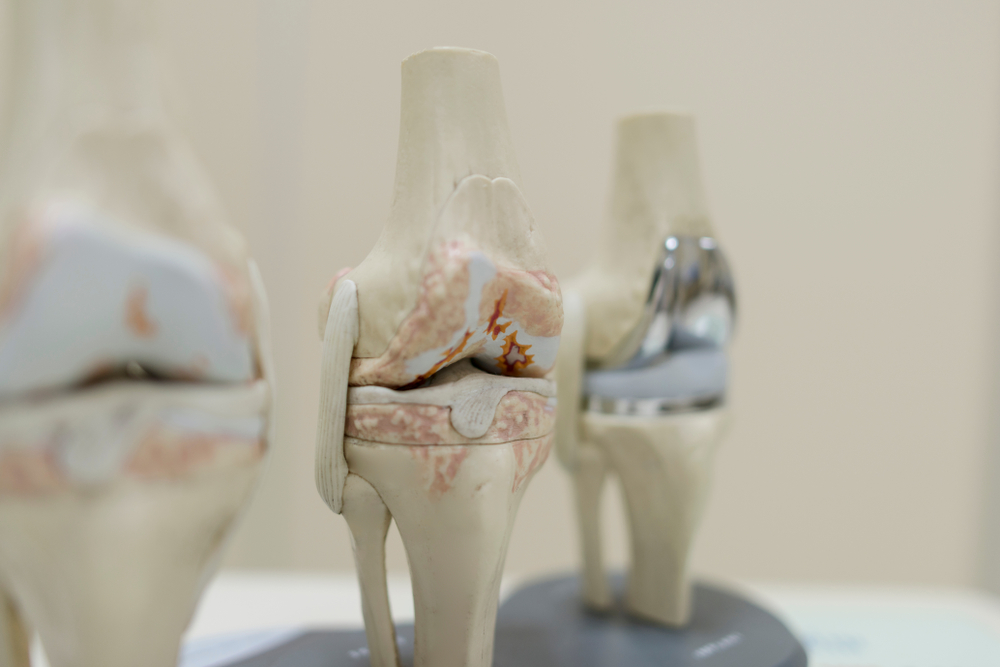Total Knee Replacement
Periodic knee pain or inflammation isn’t unusual and can usually be treated with proper rest, medications to reduce the pain and swelling and by using support to take the weight off the knee as they heal. If the damage isn’t serious or permanent, this will usually get you back to normal in a week or two.
However, normal wear and tear over time, a serious injury, disease or arthritis can damage the knee beyond its ability to repair itself. In these cases, doctors may recommend that the knee joint be replaced through total knee replacement surgery. It is a common procedure that typically results in excellent pain relief, increase mobility and improved quality of life.
In a total knee replacement, orthopaedic surgeons will remove the damaged and worn surfaces. They do this by removing the surface of the knee joint and replacing it with metal and high-density plastics that are durable and strong. In a total knee replacement procedure, the ends of the thighbone, shinbone, and under surface of the knee cap are removed. The artificial knee parts are cemented or press fit into place.

Are You a Total Knee Replacement Candidate?
If you have experienced any of the following issues, total knee replacement surgery may be an option. Your orthopaedic surgeon will discuss the procedure with you and answer any of your questions. It’s a big decision, so you will want to discuss it with your family as well as your doctors before getting the surgery.
Total knee replacement may be an option if you:
- Experience intense pain in your knees during everyday activities. This includes not being able to walk more than a couple blocks without the use of a cane or walker.
- Have moderate or severe knee pain during rest.
- Have stiff or deformed knees, either they can’t be straightened or they bow in or out.
- Unable to obtain relief using anti-inflammatory drugs or pain relievers.
- Experience chronic inflammation and swelling that doesn’t go away with proper rest or medications.
- Find that non-surgical treatments don’t improve the health of your knee joints.
If you are experiencing chronic knee pain, swelling or inflammation or don’t have the range of motion or mobility you once did, you will want to speak with your doctor about the possibility of having total knee replacement surgery. Your physician will be able to assess your condition and recommend the best course of treatment based on your disability, intensity of pain, overall health and other factors.
Please contact us for further information on joint replacement.
Contact Our Orthopedic Clinic
Fill out the form below and we will be in contact as soon as possible!
